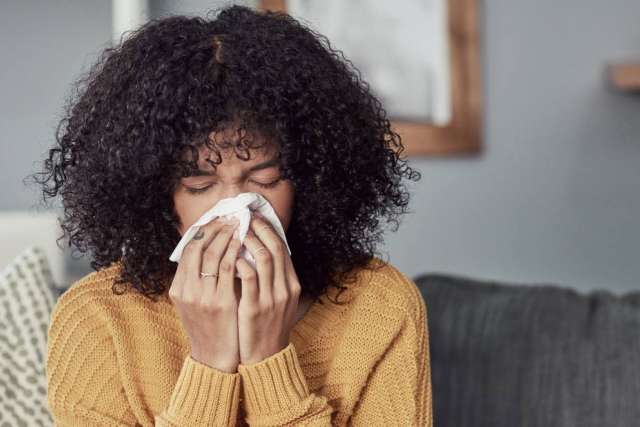Hello, dear readers, and welcome to this midsummer letters column. We hope you’re in the habit of protecting yourselves from heat, bugs and sunburn. You’ve kept our inboxes busy, so onward to your mail.
-- Regarding a column about nasal irrigation, a reader had a question: “Early on in the COVID-19 pandemic, medical advice was not to use a neti pot to wash out the nose due to possibly spreading virus due to faulty use,” she wrote. “Why was this felt to be valid advice?” When the pandemic began, SARS-CoV-2, which is the virus that causes COVID-19, was a mystery. This includes the specifics of how, and how easily, it is transmitted. We now know it to be a mostly airborne virus, which has allowed a fine-tuning of precautions. The warning against nasal irrigation stemmed from the possibility the virus could linger in devices like a neti pot and possibly increase the spread of infection. Although we now know that COVID-19 rarely spreads through surfaces, a small risk still exists. So, while the cautions against nasal irrigation have been reversed, it’s still important to thoroughly clean and dry all devices between uses.
-- A reader had a question regarding a column that included a discussion of some of the adverse health effects of added sugars in the diet. “Your column listed the dangers of soft drinks,” he wrote. “Is root beer a soft drink?” The term “soft drink” refers to nonalcoholic beverages that are often carbonated and contain either natural or artificial sweeteners and natural or artificial flavors. Root beer falls into that category.

Frequent consumption of sugary soft drinks is linked to poor blood sugar control, increased risk of Type 2 diabetes, weight gain and an increased risk of heart disease. Treating yourself to an occasional root beer likely won’t have long-term effects, but as little as one sugary soft drink per day can be harmful to health.
-- Many readers continue to have questions regarding coronavirus vaccinations and boosters. Some, who are fully vaccinated, have contracted COVID-19. This has led to questions about boosters. “I got a COVID-19 infection in February, about five months after my booster, which was before second boosters were recommended,” a reader wrote. “My question is, when should I get a second booster following my COVID-19 infection?” It is recommended that everyone get vaccinated and boosted, even if they have had COVID-19. Someone who has had COVID-19 is advised to wait to receive any kind of vaccine, including a COVID-19 vaccine or booster, until after they have recovered, and also completed their isolation period. While infection provides some immunity, the vaccines offer increased protection against developing serious disease. There is also evidence that a mix-and-match approach to boosters can enhance the immune response. This applies only to boosters and not the initial two-dose vaccine series.
Thank you, as always, to everyone who has taken the time to write to us. We love hearing from you, and we do our best to respond to as many of your letters as possible.
To learn more about the vaccines and for the latest information visit UCLA Health's .
(Send your questions to askthedoctors@mednet.ucla.edu, or write: Ask the Doctors, c/o UCLA Health Sciences Media Relations, 10960 Wilshire Blvd., Suite 1955, Los Angeles, CA, 90024. Owing to the volume of mail, personal replies cannot be provided.)





